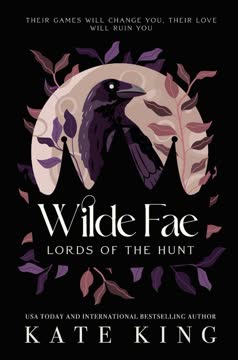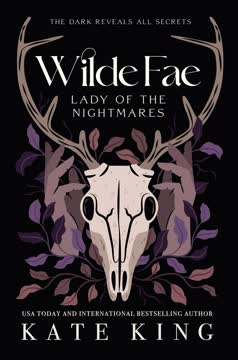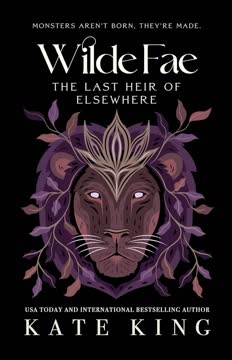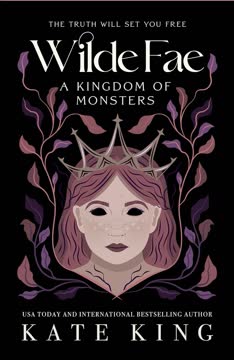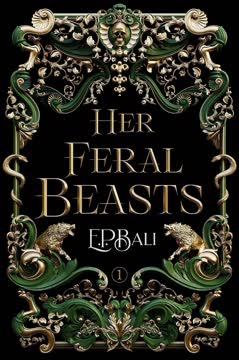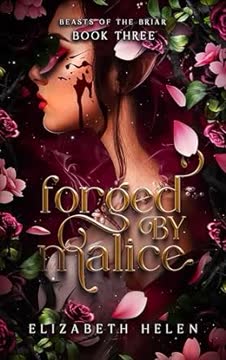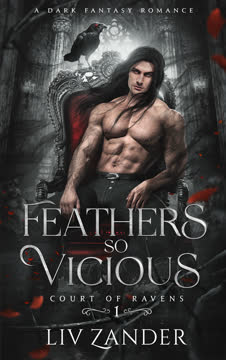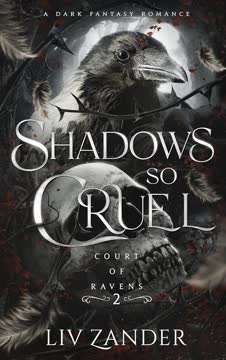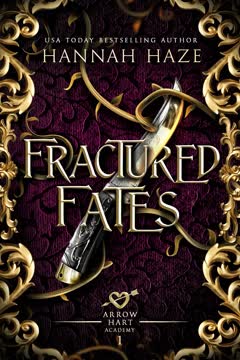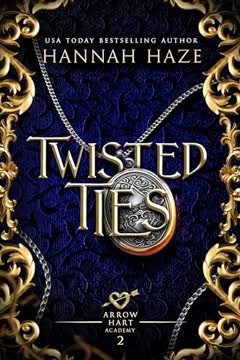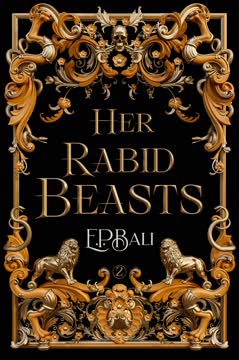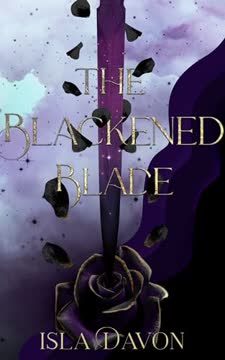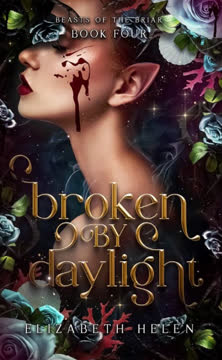Plot Summary
Lies and Mother's Rules
Lonnie, a human girl living on the edge of the Fae city Everlast, is raised by her mother on a foundation of lies and caution. Her mother's cardinal rules—never bargain with a fairy, never enter the Waywoods on hunting day, never draw the High Fae's attention—are meant to keep her daughters safe. Yet, Lonnie's life is defined by the necessity of deception, both to protect herself and her beloved twin sister, Rosey. The Fae, who pride themselves on never lying, twist truth into cruelty, making survival for humans a matter of wit and subterfuge. Lonnie's skepticism of her mother's rules grows as she matures, but the art of lying remains her shield in a world where honesty is a weapon.
Forbidden Forest Encounter
Lonnie's secret meeting with Caliban, a human palace guard, in the forbidden Waywoods is interrupted by the arrival of two High Fae princes: Bael and Scion of House Everlast. The encounter is fraught with peril, as the Fae's attention is both intoxicating and deadly. Caliban cannot see the Fae, highlighting Lonnie's unique ability. The princes' interest in Lonnie is piqued when she perceives them, a rare feat for a human. This moment marks the beginning of Lonnie's entanglement with the Everlasts, setting her apart as someone both special and cursed. The forest, a place of both desire and dread, becomes the crucible where Lonnie's fate is sealed.
The Everlast Princes Notice
The Everlast princes' attention is a curse Lonnie cannot escape. Their predatory interest is both terrifying and magnetic, and Lonnie's ability to see through their glamours marks her as different. The Fae's games are cruel, and their power absolute. Lonnie's attempts to remain invisible fail, and she is thrust into the dangerous politics of the court. The princes' fascination with her is laced with both threat and intrigue, and Lonnie's every move is now watched. The rules that once protected her are rendered useless, and she must navigate a world where being noticed is as deadly as being forgotten.
Sisterly Bonds and Sacrifice
Rosey, Lonnie's gentle and beloved twin, asks Lonnie to take her place serving at the Wilde Hunt, hiding her true reasons. Lonnie, ever the protector, agrees despite her fear and resentment of the Fae. Their bond is deep, forged in shared hardship and love, but also marked by secrets. Rosey's mysterious illness and her clandestine activities hint at a larger rebellion. The sisters' exchange of identities is an act of love and desperation, setting in motion a chain of events that will shatter their world. Lonnie's sacrifice is both an act of loyalty and the beginning of her own undoing.
The Wilde Hunt Begins
The Wilde Hunt, a brutal Fae tradition, is both spectacle and slaughter. Humans and lesser Fae are prey, and the Everlasts are the hunters. Lonnie, disguised as Rosey, is swept into the court's revelry, where music and magic threaten to overwhelm her senses. The court's cruelty is on full display, and Lonnie's struggle to maintain her composure is a battle for survival. The hunt is not just a game—it is a test of power, a means of maintaining control, and a stage for rebellion. Lonnie's presence at the hunt is a catalyst, drawing the attention of both allies and enemies.
Court Cruelty and Survival
Lonnie's attempt to remain unnoticed fails spectacularly as she is singled out by Prince Bael and subjected to public humiliation. The Fae's games are vicious, designed to break the spirit of their human subjects. Yet, Lonnie's defiance, even in the face of degradation, marks her as different. The court is a place of shifting alliances and constant danger, where survival depends on wit and the ability to read between the lines. Lonnie's refusal to submit entirely earns her both enemies and a grudging respect. The seeds of rebellion are sown in these moments of resistance.
The King's Death
Chaos erupts as Rosey, revealed as a rebel, attempts to assassinate King Penvalle during the hunt. Lonnie, helpless to intervene, witnesses her sister's brutal execution. In a frenzy of grief and rage, Lonnie kills the king with his own crown, unwittingly claiming the right to rule. The act is both vengeance and tragedy, leaving Lonnie alone and marked as the new queen by the ancient laws of the hunt. The court is thrown into turmoil, and Lonnie is immediately imprisoned, her victory a hollow one. The cost of rebellion is steep, and the price is paid in blood and sorrow.
The Queen in Chains
Lonnie's ascension to the throne is met not with coronation, but with chains. Imprisoned beneath the castle, she endures months of isolation, starvation, and abuse. The Fae's disregard for their own laws is evident, as Lonnie's claim to the crown is ignored. Her only solace is the memory of her sister and the burning desire for answers. The dungeon becomes both a tomb and a crucible, forging Lonnie's resolve. The power she holds is symbolic, yet dangerous, and the Everlasts' fear of her is matched only by their contempt. Lonnie's survival is an act of defiance, and her suffering a testament to the cruelty of the court.
Power, Prophecy, and Rebellion
The Everlast family is fractured by prophecy, ambition, and the growing threat of rebellion. Bael, Scion, and Gwydion each have their own agendas, shaped by ancient curses and personal desires. The court is a nest of intrigue, where alliances shift and secrets abound. The rebels, led by the enigmatic Dullahan, gain strength, fueled by the legend of the human queen. Lonnie's existence is both a rallying cry and a danger to the status quo. Prophecies and curses bind the Everlasts, and the past's sins threaten to consume the present. The game of power is deadly, and no one is safe.
The Human Queen's Bargain
Bael offers Lonnie a bargain: his protection in exchange for her cooperation in the hunts. The deal is fraught with danger, as Fae bargains are never straightforward. Lonnie's mistrust is deep, but her desire for freedom and answers drives her to accept. The bargain is sealed with a kiss, blurring the line between alliance and attraction. Bael's motives are ambiguous, and Lonnie's power—both magical and political—becomes a weapon in the ongoing struggle for the crown. The rules of the game are rewritten, and Lonnie steps into her role as queen, determined to survive on her own terms.
Training, Temptation, and Truths
As the second hunt approaches, Bael trains Lonnie in combat and survival, their relationship growing increasingly charged with forbidden desire. The boundaries between captor and protector, enemy and lover, blur. Lonnie's unique magic begins to manifest, complicating her understanding of herself and her place in the Fae world. The truth of the Everlast curse, the nature of mate bonds, and the cost of happiness are revealed. The past's tragedies echo in the present, and Lonnie must confront the reality that her power is both a blessing and a curse. The stakes are higher than ever, and the line between love and destruction is razor-thin.
Revels, Secrets, and Betrayals
A forbidden revel in the moonlit woods exposes the raw, dangerous allure of the Fae. Lonnie's jealousy and longing are ignited as she witnesses Bael and Scion's uninhibited desires. Secrets are exchanged in the shadows, and betrayals come to light. Lonnie's search for her sister's journals leads her to the heart of the rebellion and the truth about Rosey's sacrifice. The boundaries between friend and foe, truth and lie, are blurred. The Fae's games are deadly, and Lonnie's every choice is fraught with consequence. The night is a crucible, forging new alliances and exposing old wounds.
The Second Hunt Approaches
With the second hunt imminent, the court is a powder keg of tension. Lonnie's alliances with Bael, Gwydion, and even Scion are tested as the threat of rebellion grows. The Everlasts' internal divisions are mirrored by the unrest in the city, and the lines between hunter and hunted blur. Lonnie's power is both coveted and feared, and her every move is watched. The past's secrets—Rosey's journals, the true nature of the curse, and the identity of Dullahan—come to the fore. The game of crowns is deadly, and the only certainty is that nothing will ever be the same.
Blood, Magic, and Mates
The truth of Bael's blood magic and the dangerous allure of mate bonds is revealed. Lonnie's power is awakened by pain, desire, and the need to survive. The Fae's ancient curse, binding happiness to destruction, is both a warning and a prophecy. The connection between Lonnie and Bael is electric, fraught with both promise and peril. The boundaries of identity—human, Fae, queen, monster—are tested. The cost of love is high, and the price of power is higher still. The game is no longer just about survival, but about who will shape the future of Elsewhere.
The Past Shapes the Present
The story of Queen Aisling, the original curse, and the founding of the Wilde Hunts is recounted, revealing the roots of the Everlasts' misery. The sins of the past echo in the present, shaping the destinies of Lonnie, Bael, and Scion. The curse's true nature is laid bare: happiness for the Everlasts means death, and the crown is both a prize and a shackle. The past's tragedies are not just history—they are prophecy, and Lonnie's role in breaking or perpetuating the cycle is uncertain. The weight of legacy is crushing, and the choices of the present will determine the fate of all.
The Game of Crowns
As the second hunt dawns, Lonnie stands at the center of a web of power, prophecy, and rebellion. The Everlasts' internal strife, the threat of Dullahan, and the unresolved mysteries of Rosey's sacrifice converge. Lonnie's power is both a beacon and a target, and her alliances are as fragile as they are necessary. The game of crowns is far from over, and the next move will determine not just who rules, but who survives. The story ends on the cusp of transformation, with Lonnie poised to claim her destiny—or be destroyed by it.
Characters
Lonnie Skyeborne
Lonnie is a human girl marked by trauma, resilience, and a fierce love for her twin sister, Rosey. Raised on lies and caution, she is both a product of her mother's rules and a rebel against them. Her unique ability to perceive Fae glamours sets her apart, making her both a target and a weapon in the court's deadly games. Lonnie's psyche is shaped by loss, guilt, and the constant need to protect herself and those she loves. Her journey from servant to queen is fraught with pain, defiance, and the awakening of a dangerous power. She is both victim and agent, her choices driving the story's emotional core.
Rosey Skyeborne
Rosey is Lonnie's beloved sister, defined by kindness, self-sacrifice, and hidden strength. Her mysterious illness and secret involvement with the rebels set the plot in motion. Rosey's willingness to die for a cause she believes in—and to protect Lonnie—marks her as both tragic and heroic. Her death is the story's emotional fulcrum, propelling Lonnie into the heart of the Fae's deadly politics. Rosey's journals and secrets continue to shape the narrative, her presence lingering as both a comfort and a challenge to Lonnie's understanding of herself and the world.
Bael Everlast
Bael is the youngest son of House Everlast, a Fae prince whose charm is matched only by his cruelty. He is both tormentor and savior, his interest in Lonnie oscillating between predatory and protective. Bael's motives are complex, shaped by prophecy, family curses, and a deep-seated loneliness. His willingness to bargain with Lonnie—and to break Fae taboos for her—reveals both vulnerability and ruthlessness. The connection between Bael and Lonnie is electric, fraught with desire, danger, and the possibility of destruction. Bael is a study in contradictions: loyal and treacherous, playful and deadly.
Scion Everlast
Scion, heir to the Everlasts, is a figure of fear and fascination. His power is immense, his reputation as the Queen's Executioner well-earned. Scion's relationship with Lonnie is antagonistic, marked by both hatred and a magnetic pull. He is haunted by prophecy, burdened by family expectations, and driven by a need to control both himself and those around him. Scion's actions are shaped by a deep sense of duty and a simmering rage, making him both a formidable enemy and a potential ally. His psychological complexity is rooted in trauma, ambition, and the ever-present threat of the family curse.
Gwydion Everlast
Gwydion is Bael's brother, known for his healing magic and affable demeanor. Beneath his charm lies a calculating mind, always seeking advantage in the shifting politics of the court. Gwydion's interest in Lonnie is pragmatic—she is a valuable asset in the game of crowns. His alliances are fluid, and his loyalty is to the Everlasts above all. Gwydion's psychological profile is marked by a desire for control, a distaste for chaos, and a willingness to use others to achieve his ends. He is both ally and adversary, his motives always suspect.
Aine Everlast
Aine, Bael's sister, is a study in contrasts: beautiful and dangerous, loyal and independent. She navigates the court's treacherous waters with wit and caution, often serving as a voice of reason—or warning. Aine's relationship with her brothers is complex, marked by both affection and rivalry. She is skeptical of Lonnie, yet recognizes her potential as both a threat and a tool. Aine's psychological resilience is rooted in her ability to adapt, to read the room, and to survive in a world where weakness is fatal.
Caliban
Caliban represents the possibility of a different life for Lonnie—a life of love, safety, and normalcy. His relationship with Lonnie is tender but doomed, marked by the insurmountable barriers of class, power, and fate. Caliban's inability to perceive the Fae highlights Lonnie's difference, and his eventual absence from her life is both a loss and a liberation. Caliban's role is to remind Lonnie—and the reader—of what is at stake, and what has been sacrificed.
Ambrose Dullahan
Dullahan is the unseen hand behind the rebellion, a figure of myth and menace. His connection to Rosey, and by extension to Lonnie, is shrouded in secrecy. Dullahan's motives are revolutionary, but his methods are ruthless. He is both ally and adversary, his true intentions always in question. Dullahan's psychological makeup is defined by ambition, cunning, and a willingness to use anyone—including Lonnie—to achieve his goals.
Mordant
Mordant is the Everlasts' advisor, a figure of authority and suspicion. His knowledge of prophecy, law, and court politics makes him both indispensable and dangerous. Mordant's loyalty is to the stability of the realm, not to any individual. He is a master of manipulation, always several steps ahead in the game. Mordant's psychological profile is marked by pragmatism, a lack of sentimentality, and a deep understanding of power's corrosive effects.
Iola
Iola is a rare source of kindness and support for Lonnie in the palace. Her vulnerability and eventual poisoning highlight the dangers faced by those who align themselves with the human queen. Iola's presence is a reminder of the cost of power, the fragility of alliances, and the importance of compassion in a world ruled by cruelty.
Plot Devices
The Wilde Hunt
The Wilde Hunt is the central narrative device, a ritualized contest where the Fae hunt for power and the right to rule. It serves as both a literal and metaphorical battleground, exposing the brutality of the court and the precariousness of human life. The hunt's rules—ancient, mutable, and often ignored—are a commentary on the arbitrary nature of power. The hunt is also a stage for rebellion, a place where the oppressed can strike back, and where the boundaries between hunter and hunted are blurred. The cyclical nature of the hunt mirrors the cycles of trauma, resistance, and renewal that define the story.
Prophecy and Curses
The Everlasts are bound by ancient prophecies and a family curse that ties happiness to destruction. These elements drive the characters' actions, shaping their fears, ambitions, and relationships. Prophecy is both a source of power and a prison, dictating the terms of the game and limiting the possibilities for change. The curse's specifics—true happiness means death for the Everlasts—create a tragic tension, especially in the context of forbidden love and the possibility of breaking the cycle. Prophecy is also a tool of manipulation, used by those in power to justify cruelty and maintain control.
Identity and Disguise
The motif of identity—twins swapping places, humans passing as Fae, queens in chains—runs throughout the narrative. Disguise is both a means of survival and a source of danger. The ability to lie, to hide one's true self, is a weapon in the court's arsenal. Yet, the story also explores the cost of living behind a mask: the erosion of trust, the loss of self, and the longing for authenticity. The tension between who the characters are and who they must pretend to be is a driving force, shaping both plot and character development.
Power Dynamics and Bargains
The Fae's inability to lie is contrasted with their mastery of bargains, oaths, and wordplay. Every interaction is a negotiation, every promise a potential trap. The bargains struck—between Lonnie and Bael, between queen and court, between rebels and rulers—are fraught with double meanings and hidden costs. Power is always in flux, and the ability to read and manipulate the terms of engagement is essential. The erotic charge of these negotiations adds another layer, blurring the line between alliance and desire, dominance and submission.
Narrative Structure and Foreshadowing
The story weaves together multiple timelines—childhood memories, present struggles, ancient history—creating a sense of inevitability and depth. Foreshadowing is used to build tension, hinting at betrayals, revelations, and the ultimate cost of power. The unreliable narration, shifting points of view, and the use of dreams and visions all contribute to a sense of uncertainty and suspense. The structure mirrors the labyrinthine nature of the court and the hunt, where every path is fraught with danger and every choice has consequences.
Analysis
Lords of the Hunt is a dark, lushly imagined fantasy that interrogates the nature of power, trauma, and survival in a world where truth is weaponized and cruelty is tradition. At its heart, the novel is about the cost of being noticed—of standing out in a society that punishes difference and rewards conformity. Lonnie's journey from servant to queen is both a personal and political awakening, as she learns to wield the very tools—lies, bargains, and defiance—that once kept her alive. The story's emotional arc is driven by loss, longing, and the search for agency in a world that denies it to the powerless. The Fae, with their seductive brutality and ancient curses, are both oppressors and victims of their own history, trapped in cycles of violence and desire. The novel's exploration of identity, consent, and the possibility of change is both timely and timeless, offering a meditation on the ways we are shaped by the stories we inherit and the choices we make. Ultimately, Lords of the Hunt is a tale of resistance: against fate, against tyranny, and against the lies we tell ourselves to survive.
Last updated:
Review Summary
Lords of the Hunt receives mixed reviews, with many praising its dark fae world and slow-burn romance. Readers appreciate the complex characters, especially the morally grey fae princes. Some find the plot intriguing and unpredictable, while others criticize inconsistencies and confusing elements. The book is often compared to The Cruel Prince and A Court of Thorns and Roses, but with more adult themes. Many readers eagerly anticipate the sequel, despite some frustrations with unanswered questions and cliffhangers.
